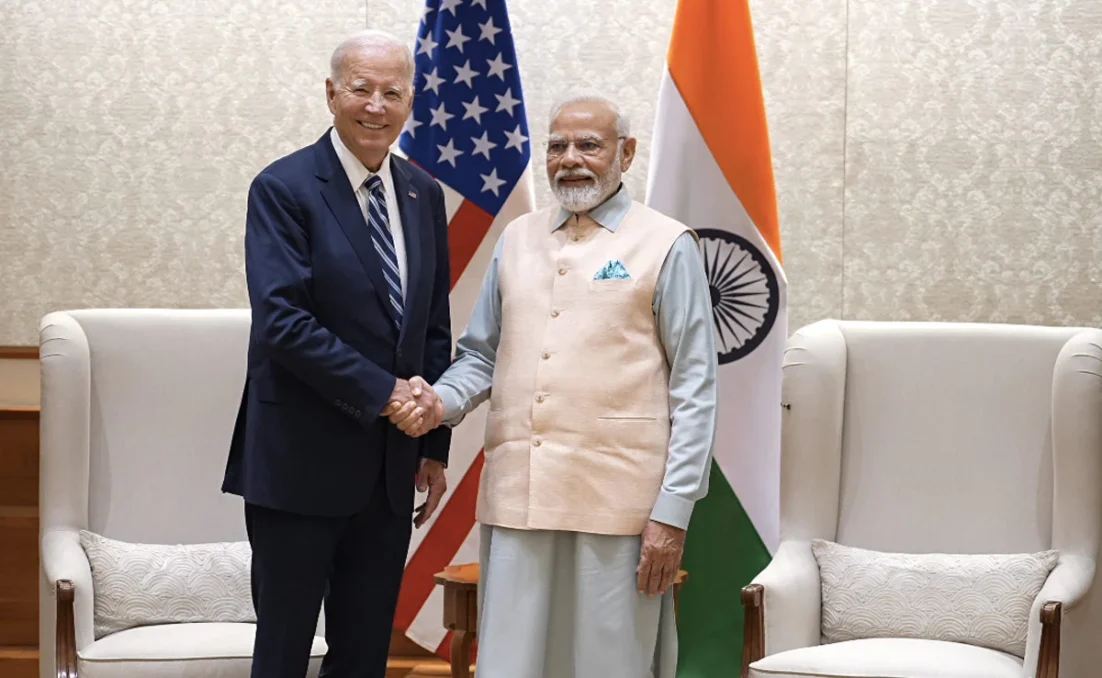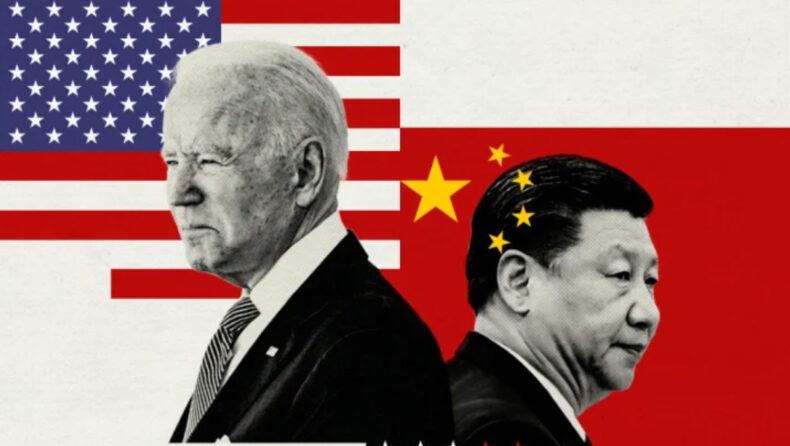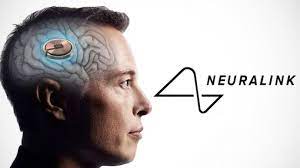US President Joe Biden emphasised the importance of the India-Middle East-Europe Economic Corridor (IMEC), which officially began operations on Saturday. He described it as a huge accomplishment and a “game-changing investment” for the US.
In order to promote employment and improve food availability on a global scale, he emphasised the US’s commitment to funding the innovative train line that runs from Angola to the Indian Ocean. He predicted that in the next ten years, the phrase “economic corridor” will be widely used.

Table of Contents
Inauguration Of IMEC: Biden Calls It Huge Deal
The opening of IMEC was officially announced by Prime Minister Narendra Modi on Saturday, the first day of the G20 Summit. The United Arab Emirates, Saudi Arabia, the European Union, France, Italy, Germany, and the United States are working together on the plan.
According to PM Modi, this corridor would serve as a “significant conduit of economic cooperation between India, West Asia, and Europe,” opening up new possibilities for global connection and equitable development. He said, “This corridor will show the way to sustainability to the whole world,” underscoring the significant opportunities this initiative aims to provide.
Through its two defined paths—the eastern corridor linking India to the Arabian Gulf and the northern artery linking the Arabian Gulf to Europe—the joint initiative lays the groundwork for deeper economic cooperation between nations. The pathways will use a complex network of railroads, maritime lanes, digital and power cable networks, and clean hydrogen export pipes to enable easier passage of goods and amenities.
IMEC: G7 Collaboration And A Rival To China
The corridor, which has its foundation under the Partnership for Global Infrastructure Investment (PGII) banner and promoted by the G7 countries, seeks to be a strong rival to China’s Belt and Road Initiative.
The G7’s joint initiative, sponsored by PGII, would finance infrastructure improvements in developing countries, thereby strengthening global economic ties with energy goods playing a key role in the improvement of commerce between the member countries.
Ursula von der Leyen, president of the European Union, identified the corridor as the “most efficient route between India, the Middle East, and Europe,” highlighting the cost-effectiveness it guarantees by considerably cutting travel time by 40%.
Mohd bin Salman, the Crown Prince and Prime Minister of Saudi Arabia, expressed excitement at the success of this revolutionary project.
The White House described the planned rail system as a dependable and affordable alternative to the existing sea and road transport networks, greatly increasing the possibilities for global trade. The participating nations committed to going on with this historic endeavour and diligently developing a strategy of action within the next 60 days.
Promoting Sovereignity And Integrity
In order to emphasise the importance of sovereignty even more, PM Modi, US President Joe Biden, and a group of other world leaders reiterated the call for respecting the territorial integrity of all countries as they announced this project aimed at linking the sea to the land. This clear focus served as an affirmation of the united goal of regulating China’s contentious Belt and Road Initiative.
Ajay Banga, the head of the World Bank, French President Emmanuel Macron, German Chancellor Olaf Scholz, European Commission President Ursula von der Leyen, Italian Prime Minister Giorgia Meloni, and Saudi Arabia’s Crown Prince Mohammed bin Salman Al Saud were among the world leaders who converged for the high-level commitment. This significant alliance highlights the widespread agreement and common goal for a project of this size and relevance.
IMEC: A Revolutionary Project
The IMEC project, which began as early as May 2024 in negotiations, is intended to revolutionise connectivity by avoiding current barriers in India-Pakistan ties and promoting rail connection between Europe and the Persian Gulf states, with a potential extension to Israel in the future. Via the IMEC, the practical implementation of the ship-cum-train link might provide a crucial transit option for a variety of items, improving trade efficiency and paving the way for a sustainable future.
A brand-new chapter in the functioning of the global economy appears to be emerging as world leaders agree to their pledges in the Memorandum of Understanding, pledging revolutionary cooperation and long-term paths for development, job creation, and commerce throughout Asia, Europe, and the Middle East. It is a symbol of cooperation, foresight, and expansion that represents the possibility of open, safe, and profitable international relations in the future.













